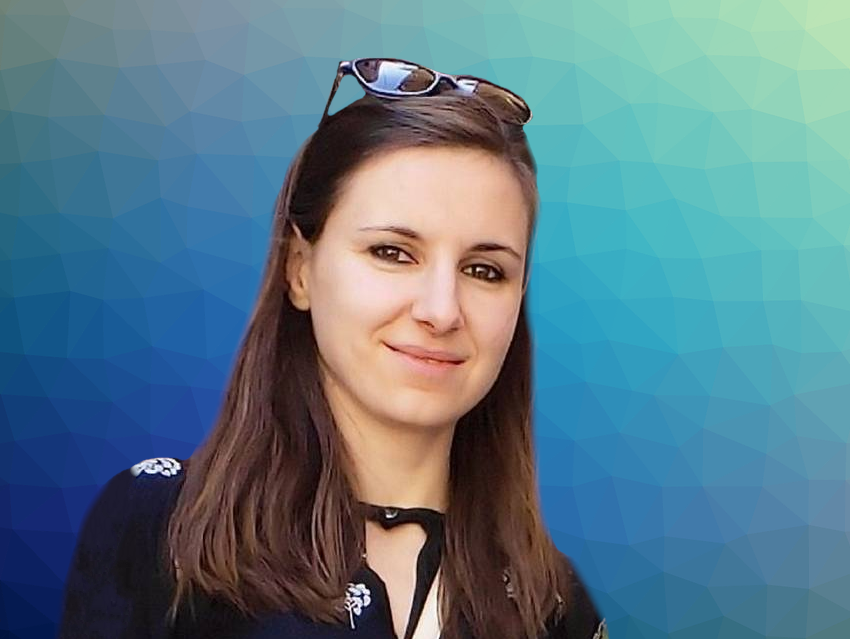Dr. Juliane Simmchen, University of Strathclyde, Glasgow, UK, and Technical University of Dresden, Germany, has received the Mario Markus Prize for Ludic Sciences from the German Chemical Society (GDCh). She received the prize for a publication in which she investigated biomimetic behavior in artificially created active matter [1].
The award honors scientific work in the field of natural sciences that is characterized by its playful character and is endowed with EUR 10,000. The award ceremony took place on January 30, 2024, as part of a public event on the premises of the Physical Society in Frankfurt am Main, Germany. The prize is financed by Professor Mario Markus, Dortmund, Germany, who dedicated himself to ludic science and coined this term.
Juliane Simmchen investigates how microparticles can be moved in liquids in a targeted manner. While people can move through the water with deliberate movements when swimming, in order to move in liquids, microparticles have to be permanently supplied with energy and equipped with a kind of “motor”. In the award-winning publication, Simmchen observed a special phenomenon: The artificial magnetic and photocatalytic “microswimmers” she produced crossed a line of light and then changed direction without any additional stimulus. To find out why the microswimmers swim “back to the light,” she looked at different influences. She found that neither the magnetic field nor the hydrogen peroxide content of the surrounding solution had any significant effects. Instead, the size of the particles is crucial because it influences the rotational diffusion time and the particles’ Brownian motion. These results show how simple physical effects can lead to complex but stable behavior.
Juliane Simmchen was born in 1986 and studied chemistry at the Technical University of Dresden, where she graduated with work in analytical chemistry in 2010. She completed her Ph.D. in materials science in 2014 at the Catalan Institute of Nanoscience and Nanotechnology (ICN2) at the Autonomous University of Barcelona, Spain. After stays at the Max Plank Institute for Intelligent Systems, Stuttgart, Germany, and at the Centro Brasileiro de Pesquisas Físicas, Rio de Janeiro, Brazil, she returned to the Technical University of Dresden in 2016 as a Researcher. Since 2016, she has been a Freigeist Fellow on the topic of “Light-driven microswimmers”. Since 2022, she has also been teaching at the University of Strathclyde, Glasgow, UK. In 2022, the GDCh awarded Simmchen the Carl Duisberg Memorial Award for her research.
Reference
- [1] Apparent phototaxis enabled by Brownian motion,
Lukas Niese, Linlin Wang, Sayan Das, Juliane Simmchen,
Soft Matter 2020, 16, 10585–10590.
https://doi.org/10.1039/D0SM01603A
Selected Publications by Juliane Simmchen
- Combining photocatalytic collection and degradation of microplastics using self-asymmetric Pac-Man TiO2,
Purnesh Chattopadhyay, Maria Camila Ariza-Tarazona, Erika Iveth Cedillo-González, Cristina Siligardi, Juliane Simmchen,
Nanoscale 2023, 15, 14774–14781.
https://doi.org/10.1039/d3nr01512b - Pair Interaction between Two Catalytically Active Colloids,
Priyanka Sharan, Abdallah Daddi‐Moussa‐Ider, Jaime Agudo‐Canalejo, Ramin Golestanian, Juliane Simmchen,
Small 2023, 19, 2300817.
https://doi.org/10.1002/smll.202300817 - IRONSperm: Sperm-templated soft magnetic microrobots,
Veronika Magdanz, Islam S. M. Khalil, Juliane Simmchen, Guilherme P. Furtado, Sumit Mohanty, Johannes Gebauer, Haifeng Xu, Anke Klingner, Azaam Aziz, Mariana Medina-Sánchez, Oliver G. Schmidt, Sarthak Misra,
Sci. Adv. 2020, 6, eaba5855.
https://doi.org/10.1126/sciadv.aba5855 - Photocatalytic TiO2 Micromotors for Removal of Microplastics and Suspended Matter,
Linlin Wang, Andrea Kaeppler, Dieter Fischer, Juliane Simmchen,
ACS Appl. Mater. Interfaces 2019, 11, 32937–32944.
https://doi.org/10.1021/acsami.9b06128 - Topographical pathways guide chemical microswimmers,
Juliane Simmchen, Jaideep Katuri, William E. Uspal, Mihail N. Popescu, Mykola Tasinkevych, Samuel Sánchez,
Nat. Commun. 2016, 7, 10598.
https://doi.org/10.1038/ncomms10598 - Biohybrid Janus Motors Driven by Escherichia coli,
Morgan M. Stanton, Juliane Simmchen, Xing Ma, Albert Miguel‐López, Samuel Sánchez,
Adv. Mater. Interfaces 2015, 3, 1500505.
https://doi.org/10.1002/admi.201500505
Also of Interest
-
Towards a Greener Lab: Reducing Single-Use Plastics,
ChemistryViews 2023.
Ideas for reducing the amount of single-use plastics in the lab - Debating the Everyday Impact of Polymer Materials,
Franziska Lissel, Juliane Simmchen,
ChemistryViews 2023.
https://doi.org/10.1002/chemv.202300049
Plastic is associated with notions of progress, independence, poverty alleviation, life support, as well as concerns of ecological, health, and social burden -
Mario Markus Prize for Ludic Sciences Awarded for the First Time,
ChemistryViews 2022.
Johann Ostmeyer, Christoph Schürmann, and Carsten Urbach honored for scientific work with a playful character



